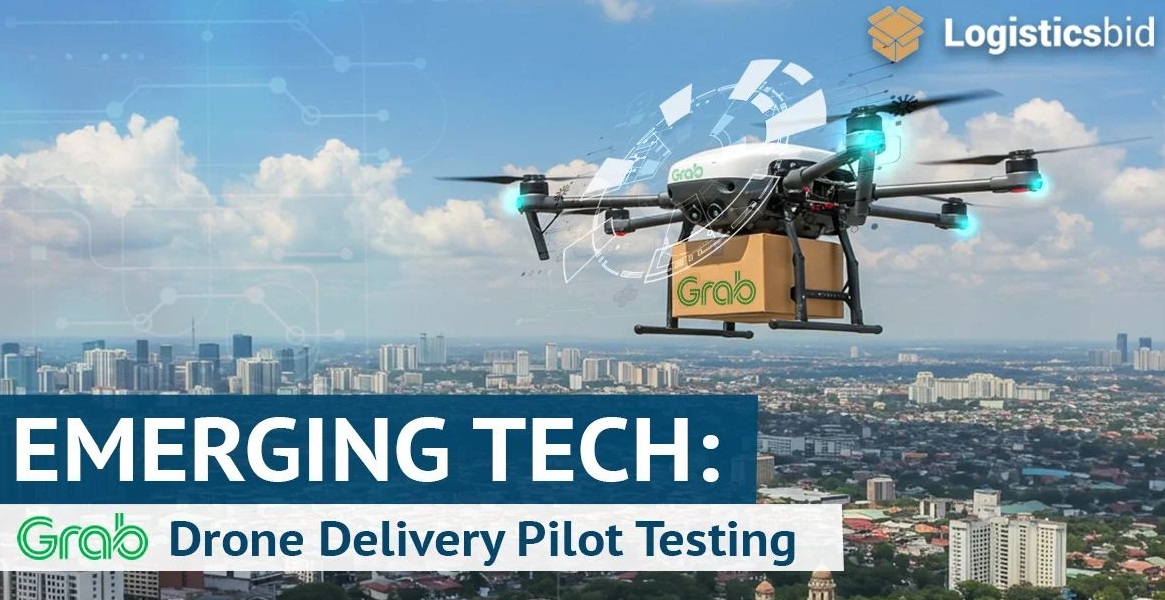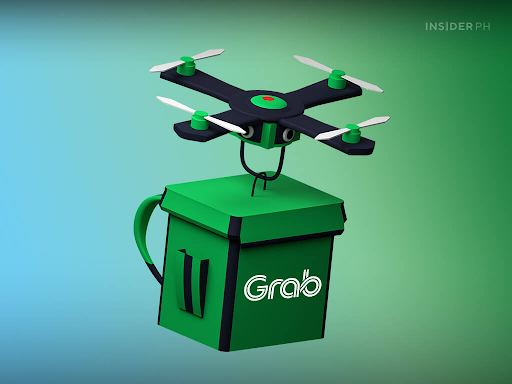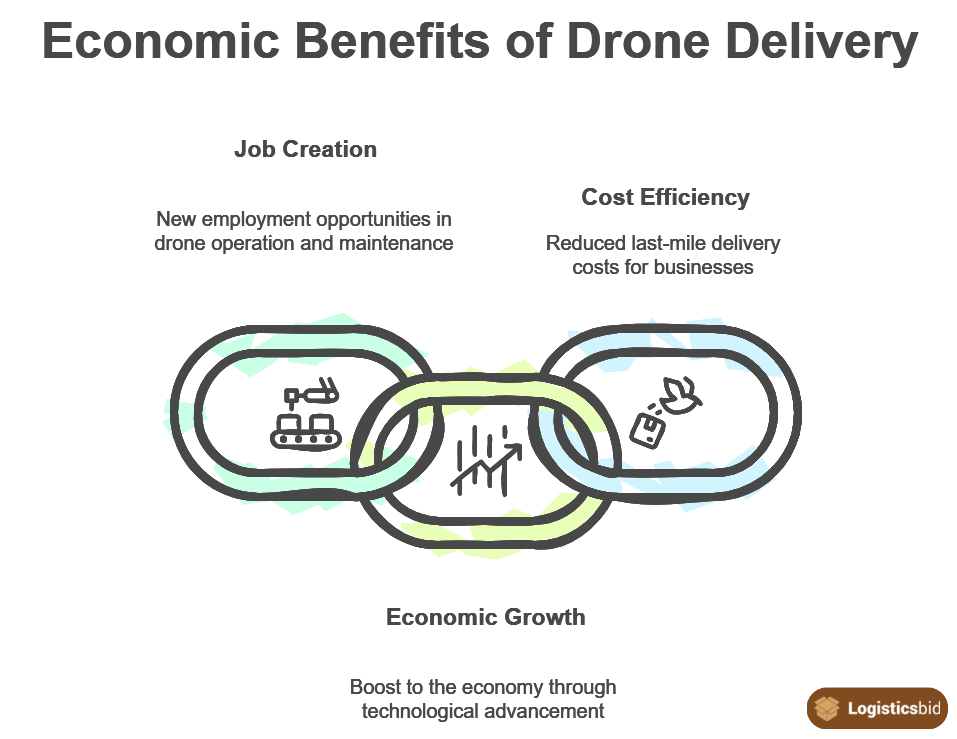
In an exciting move, Grab Philippines has launched a pilot test of drone-powered delivery services in Metro Manila. This initiative aims to explore how Grab’s drone technology can enhance logistics operations and increase accessibility in underserved areas. With rising demands for efficient and innovative logistics solutions, drone technology is rapidly becoming a focal point for companies in the Philippines, sparking interest across the industry.
What is Drone-Powered Delivery?
 |
Drone-powered delivery involves using unmanned aerial vehicles (UAVs) to transport goods from one location to another. In the Philippines, where urban congestion remains a significant challenge, this drone delivery method is seen as a solution to navigate the crowded streets of busy cities. The pilot program, initiated in partnership with Megaworld Corp., the Department of Transportation (DOTr), and the Department of Information and Communications Technology (DICT), seeks to evaluate operational feasibility, customer acceptance, and regulatory compliance of using drone delivery.
Why is Drone Technology Important for Logistics?
Recent studies underscore the logistics sector’s pressing need for more sustainable and efficient solutions. According to a report by Statista, the global drone logistics market is expected to reach USD $29 billion by 2025. Drone technology promises to drastically reduce delivery times, enhance customer satisfaction, and reduce carbon footprints by eliminating the reliance on ground-based transportation.
How Does Grab Tech Compare to Other Tech-Driven Solutions in Logistics?
Grab Philippines is not alone in exploring innovative logistics avenues. Several other logistics providers in the Philippines are also venturing Grab technology-driven initiatives.
Foodpanda’s Initiative: Embracing Automation
 |
Similar to Grab, Foodpanda has been actively incorporating technology into its operations. The company has launched an automated warehouse system that utilizes robotics for sorting and packaging food items. This system significantly reduces operations time and enhances delivery speed. By investing in automation technologies, Foodpanda aims to ensure efficiency and scale in its logistics while reinforcing safety measures in food delivery.
Transportify’s Customizable Delivery Solutions
 |
Transportify, another logistics company operating in the Philippines, is extending technology-enhanced customizable delivery solutions. Transportify offers an easy-to-use mobile app with real-time tracking, enabling customers to monitor their delivery status in real-time. The company is also experimenting with route optimization algorithms that leverage AI to ensure faster and more efficient deliveries, a similar logic to what Grab aims to achieve with its drone initiative.
J&T Express and Blockchain Technology
 |
J&T Express has explored the integration of blockchain technology to enhance transparency and trust in their delivery process. Utilizing blockchain for tracking shipments allows both the sender and receiver to access real-time data, improving accountability and customer experience. This added layer of technology aligns with Grab’s ambitions to ensure responsible and consumer-focused drone utilization.
What Makes Grab’s Initiative Unique?
Grab Philippines is taking a particularly robust approach by examining a hybrid delivery model where drones and conventional delivery partners work in synergy. The initial phase of the pilot will evaluate operations between two Megaworld properties, highlighting a commitment to both urban logistics and partnership with property developers for strategic drone landing stations. Grab’s Managing Director, Ronald Roda, emphasized the importance of understanding the Philippine context for drone deliveries, focusing on feasibility from dense urban neighborhoods to underserved areas.
Addressing the Need for Improved Urban Connectivity
As Transportation Secretary Vivencio B. Dizon suggested, to combat traffic congestion and improve connectivity, new solutions beyond conventional road systems are vital. This insight aligns with other logistics trends, as companies like Grab, Foodpanda, Lalamove, and J&T Express adopt cutting-edge technologies to strengthen their supply chains, enhance service delivery, and reduce their environmental footprint.
The Impacts of Drone Delivery on the Philippine Economy
One of the most significant advantages of implementing drone-powered delivery services is the potential for economic growth and job creation. As the logistics sector evolves with the introduction of drone technology, new employment opportunities may arise in various support areas, including drone operation, maintenance, and Grab technology development.

A study by the International Air Transport Association (IATA) reported that drone technology could create over 100,000 jobs in the Asia-Pacific region alone by 2025. This growth will not only provide a boost to the economy but also foster a new generation of tech-savvy professionals who can contribute to the sector’s advancement.
Cost-Efficiency for Businesses
According to a 2022 report by Deloitte, drone deliveries could reduce last-mile delivery costs by up to 70%. This efficiency will allow businesses to enhance profit margins while potentially passing on cost savings to consumers in the form of lower delivery fees.
Conclusion: A Shared Vision for Digital Transformation
The push for drone logistics services by Grab Philippines is part of a broader movement within the logistics sector to integrate advanced technology. As various companies navigate evolving consumer demands and urban challenges, the rise of drone delivery systems could transform the way goods are transported in urban areas. With continued exploration into partnerships and technological innovations, the future of logistics in the Philippines looks to be fast, tech-driven, and increasingly efficient.
As Grab aims to pilot its drone delivery services, other initiatives from companies like Foodpanda, Lalamove, and J&T Express further illustrate the adaptability and innovation potential of the Filipino logistics landscape. If successful, these emerging Grab tech-driven logistics services are poised not only to elevate customer experiences but also to contribute to a more sustainable and connected future for the logistics industry.
SEE ALSO:
